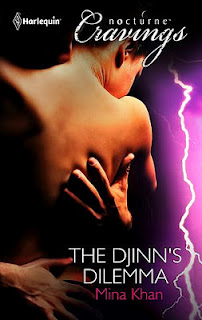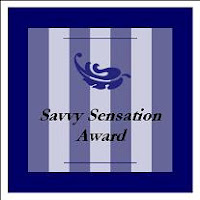Typically, I am not one to rant. I'm a pretty easy-going, live-and-let-live kinda girl. But this past week, I was pushed a bit to the brink with this whole author blog thing.
I wrote this post last Friday and since then, the lovely Anne R. Allen has tackled the same topic, so I suggest you read her post as well because I'm going to attempt to not be redundant and to come at it from a different angle.
*Warning: This is a ridiculously long post. I apologize in advance. Grab a cup of coffee and a pastry in case you get peckish halfway through.*
Writers are under a lot of pressure to build their platform. We talk about it ad nauseam here and there are posts everywhere you turn in the writing blogosphere. When I read those posts, I try to pull out the tidbits that may help me and let the rest roll off my back.
But lately, it seems like the noise of what we should and should not do is becoming not just loud but cacophonous, contradictory, and oftentimes, unrealistic in my opinion.
Luckily Agent Sara and my lovely editor are perfectly happy with my web presence and never put pressure on me to do any of it. But this doesn't mean I don't put pressure on myself. And I know many of you out there are doing the same.
So let's look at what's being said as of late about blogging...
1. "Writers should not blog about writing."
Okay, first Kristen Lamb said it and I understand where she's coming from--you want to reach readers, not just writers. Then Janet Reid said it because she thinks writing about writing makes for a "boring" blog. (From Twitter: booooring. your website is about your finished writing, not your process. Its like watching sausage being made: nooooo")
My reaction: I GET it. I understand why it behooves us to have a broader audience than just writers. This is why I bought Kristen's book and started my separate author blog. But I disagree that blogging about writing is boring and something that should be frowned upon. Anything can be boring if done the wrong way. Also, I think for the writer just sticking their toe in the blogging waters, writing about writing and getting connected to the online writer community are not bad things. It can help you find your blogging voice and build a support network. Then you can gain the confidence to experiment to branch out and expand your topics.
So I trudge along with my "shouldn't be doing it" writing blog and my "more for readers" author blog. I'm not on the ledge yet. I'm doing alright.
Then...
2. There's that post by Wendy Lawton that inspired my Is Blogging Dead? post where she says that blogging may not be worth the time because the blogosphere is glutted and it's going to be impossible to stand out.
My reaction: You can read my full post, but basically, I think if you love blogging, do it. If you think it's going to put you on the NYT Bestseller list, you're probably going to be disappointed. I see fellow authors all the time who've built significant online presences, but I don't see there names rocketing to the bestseller list because of it. I'm sure it doesn't hurt their sales, but you have to think realistically. Even if you have 5000 blog followers and EVERY one of them bought your book--which believe me, will not happen, maybe 5-10% will. You're still not going to make any major list (unless those 5k people bought your book all in the same week--also not likely.)
So off I go, still typing my little blogging heart away, but being realistic. Then...
3. People start talking about what kind of stats you should be getting to be considered a decent blog by NY Publishers.
Agent Rachelle Gardner puts out the statistic that a blog should get about 15k hits a month to be considered good. Then Meghan Ward hears from agent Andy Ross that 100k hits is where it needs to be to get attention and an editor says less than that, but 10k Twitter followers is a good range. So Meghan's research reveals somewhere around 30k hits is what they want us shooting for.
My reaction: *jaw drop * *rant starts boiling within me* I respect all of these agents who are giving this information. However, this is a seriously intimidating bar to set for people. In summary: Blog, but not about writing, and only if you can get a crap ton of hits, otherwise don't bother because it's worthless. 0_o
This blog, which I think most would consider respectably successful (including my own agent who is totally excited by my numbers), has taken me two years and 500 posts to build. I have roughly 2k followers when you combine RSS and google connect. I definitely don't get 30k hits a month. Not even close to any of those numbers thrown out above.
And 10k Twitter followers? You know how you get 10k twitter followers easy peasy? You go follow 10k people. The number of twitter followers can be completely misleading. People who follow everybody and their daddy will get people following back. But are they engaging with you? And are you going to be able to engage with all those people in a genuine manner if you're following everyone just to get your numbers up? It becomes a meaningless number. (Read Kristen's Having the Right Friends for more on that.)
So after all of this piled up in my brain, here is what I wanted to shout at the heavens: "I am not a blogger who writes. I am a WRITER WHO BLOGS!" *insert expletives that aren't appropriate for this blog*
My main goal is not to become one of the uber blogs that gets 100k hits a month. People who are doing that are BLOGGERS. That is their job. MY job is to write books that people are going to want to buy. My blog and twittering and everything else are accoutrements to that goal. If I wanted to be a blogger for a living, I would've gone and worked toward that.
So I'm begging those out there to take the pressure off of writers.
Yes, blogging and social networking are great tools for your platform. Even though, frankly, the jury is still out on whether it actually sells any significant amount of books. (Check out this post on the supposed uber blogger/writers that Anne linked to in her post.) There will always be "break out" cases and hopefully some of us become one, but the reason why people always say Seth Godin, Neil Gaiman, Konrath, etc. is because there are so few who actually reach that level with an online presence. For every one of them, there are thousands who blog and network their little hearts out and go completely unnoticed.
And yes, blogging about something other than writing will give your readers variety. But almost every "big time' author who regularly blogs, blogs about writing sometimes. Readers like to hear the behind the scenes on occasion. So you don't have to cut it out cold turkey.
And honestly, post-publication, readers go to author blogs to get to know you better. Writing is obviously part of who you are, so why not include some of that along with other things you're interested in.
Niche blogs do the best hits wise (i.e. blogs on cooking or celebrity gossip or crafts), but listen--once you are a published author, YOU are the niche. YOU. Readers aren't coming to you to learn how to scrapbook or play checkers (unless you write books about those things.) They want to know about topics related to your books and you as a person.
This idea that you're going to build some crazy big blog and people are going to flock to it for tips on playing tiddlywinks and think--ooh, look, she's a paranormal romance writer too, I'm going to go buy her book!--is unrealistic in my opinion for fiction writers (non-fic is a whole other animal). If you are not blogging about something that is related to the kinds of books you write, the two dots are not going to connect. I could build a cute puppy pics site, but it's not going to make people want to buy my erotic romance.
And even if it's related, it still may fall flat. I enjoy reading historical romances. But I do not have any particular interest in learning facts about the Victorian period. So if you make your blog about that, I'm not going to be interested. You've gone too niche-y. So try to think of things that are appealing to a broad group of readers. Meg Cabot has a great blog. It's just her using her voice to talk about whatever. And it works because she's an established author and people seek her out--then they see her blog is interesting too, so they stick around.
As for those numbers thrown out there, the only reason you'd need a blog with 100k followers pre-publication is if you want to get a book deal BASED on your blog like that Julia Child book/movie. And your chances of that happening are about the same as striking oil in your backyard. I doubt that's what most of us are going for.
In my humble opinion, here is what a writer should be focused on...
1. Write the best damn books you can (duh). Because ultimately, that's what's going to give you a lasting career and draw people to you.
2. Build an online presence that is meaningful to you and that you get excited about.
3. Blog about what you want but try to find things that you think will appeal to your target audience. If you're passionate about whatever it is, that will come through and people will want to read it. You are introducing people to yourself and your voice first, the topic is secondary.
4. Do not obsess on the number of followers and hits. It's about building engagement with others NOT about a statistic that may or may not be meaningful. (There are even authors like Natalie Whipple who are so frustrated with that focus on numbers that they are deleting their follower gadget.)
5. Be visible to readers -- get book bloggers to review you, do interviews, hang out in forums. Don't just stick in the little writing corner of the the world.
6. Genuinely engage with others. Be helpful, be funny, be entertaining--whatever works best for you. A thousand engaged followers is way more valuable than 10k strangers.
7. Decide if you want to be a writer who blogs or a blogger who writes. Big difference. We only have so much time and creative energy in a day, where do you want to channel the majority of yours?
Which path do you think is going to be more likely to lead you to a book deal or writing success?
Spending the majority of your work time writing and honing your craft, while doing social networking and blogging in between?
Or, spending all your time building a mega blog and hoping New York will notice you?
I'm putting my money in the first basket for 99% of cases.
So I'm here to tell you, fellow scribes, to give yourself a break. Stop stressing. My publisher didn't even ask about my blog when they gave me a book deal. As long as I have a website and they know I'm on the social networks, they're fine. They are much more concerned about me writing great books and making deadlines.
And my small potatoes writing blog has gotten me a lot of opportunities. I've been invited to speak for groups without even having a book to sell yet. I've been blessed to meet all kinds of people who are willing to promote me without me asking. I've had people recognize my name who I had no idea were even aware of me.
Will it help me sell books? *shrug* Maybe, maybe not. But I wouldn't go back and change it. The people I've met through blogging have made this more than worth the effort. Maybe I'm doing it all wrong, but it's working for me.
That's not to say that I'm not always striving to do better and that I wouldn't love to get those crazy number of blog hits at some point, but that is not what is going to keep me up at night. I've got enough sleepless nights with my characters chattering at me, thankyouverymuch.
*end rant*
So has any of the recent blogging advice gotten you all stabby? What frustrates you the most about the advice out there? What have you found most helpful? What do you want your blog to be? And do you think blogs sell books?




















